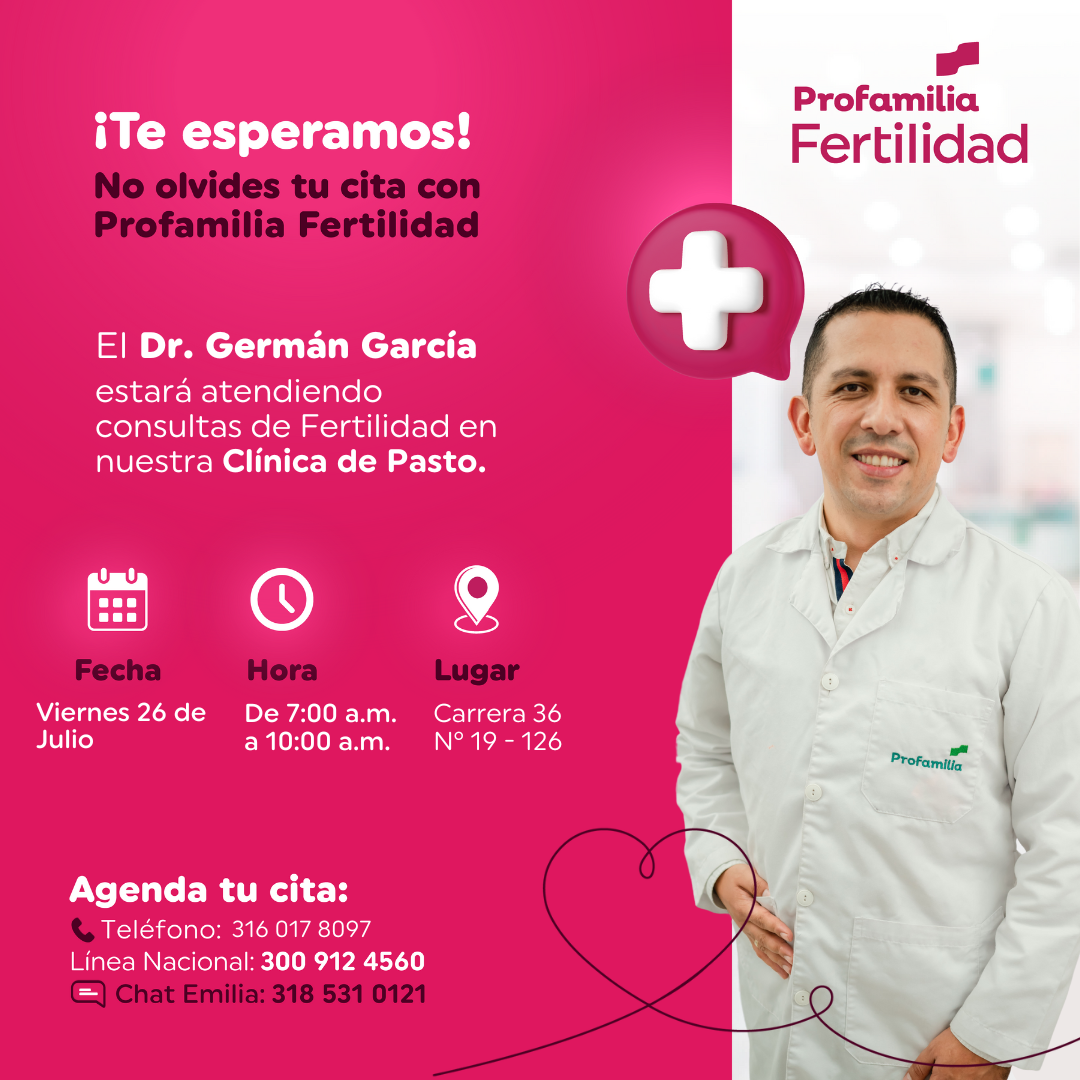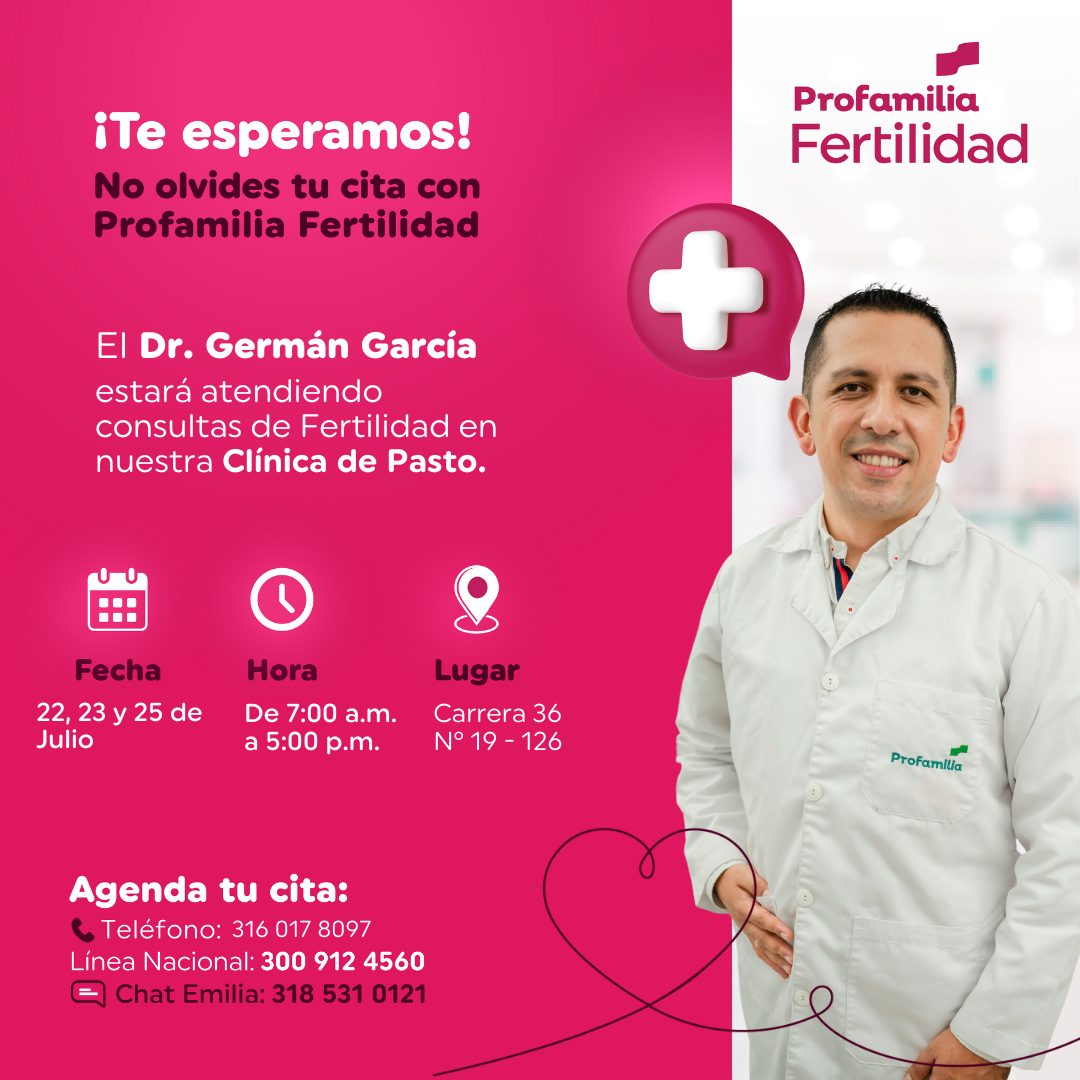Let's talk about fertility
Everything you need to know,
about fertility and its treatments
Infertility is defined by the WHO as a disease and is a deficiency of the male or female reproductive system consisting of the inability to achieve pregnancy after 12 months or more of regular unprotected sexual intercourse.
Approximately 80 million people in the world suffer from infertility, this is so common that at least 1 in 6 heterosexual couples have difficulty conceiving. At least 12% of women of reproductive age who want to become pregnant do not succeed.
In addition, same-sex couples or single-parent families often need medical support in order to have a child.
Infertility is a condition that affects 15-20% of couples of reproductive age. Within the field of reproductive health, infertility implies a disease that does not compromise the physical integrity of the individual or threaten his or her life. However, it can have a negative impact on the development of the person, producing frustration and weakening the personality, since many couples and individuals consider having children as a life goal. Compared to other species, humans are highly inefficient in terms of reproduction. The fertility rate per cycle is about 20% and the cumulative pregnancy rate in couples with proven fertility is approximately 90% after twelve months and 94% after two years.
The causes of the increase in infertility may be due to at least 4 factors: This increase could be due to at least four factors: postponement of the moment when the decision to have children is made, alterations in semen quality due to habits such as smoking and alcohol, changes in sexual behavior and obesity or unhealthy lifestyle habits.
The study of the infertile couple has always been focused considering different factors: ovulatory (present in about 15% of couples), tubal-peritoneal (observed in ~35% of couples), male factor (35% of cases) and unexplained cause (15% of couples). About 40% of all infertile couples have a combination of factors. Three major changes in the approach to infertility have occurred during the last two decades. First, the introduction of assisted reproductive technologies has provided an opportunity to study basic reproductive processes as well as fertility preservation treatments. Second, societal changes have occurred, such as an increase in the proportion of women over the age of 35 seeking pregnancy; this is due to people getting married later in life and postponing pregnancyFirst, the introduction of assisted reproductive technologies has provided an opportunity to study basic reproductive processes as well as fertility preservation treatments. Second, societal changes have occurred, such as an increase in the proportion of women over the age of 35 seeking pregnancy; this is due to people getting married later in life and postponing pregnancy. Thirdly, the development of molecular biology and genetics have become very important for the study, diagnosis and evaluation of couples, many of them considered until now as “infertile couples without explanation”.
When should I see a specialist in human reproduction?
• If you are under 35 years old and have been having unprotected sex for 1 year or more and have not achieved pregnancy.
• If you are over 35 years old and have been having unprotected sex for 6 months or more and have not achieved pregnancy.
• If you are a single woman or a woman without a male partner and you want to get pregnant.
• If you have been diagnosed with endometriosis, polycystic ovary, if you have undergone surgery on your ovaries.
• If you want to know how your ovarian reserve is.
• If you wish to undergo a fertility preservation treatment (egg vitrification).
• If you are a carrier of a genetic disease that you do not want to transmit to your children.
• If you have had more than 2 miscarriages.
Contact Us
Fill in your details and
schedule your first
appointment and spermogram
Locations
Profamilia has laboratories specialized in fertility with cutting edge technology
Click on the city to see the location on the map
Bogotá
Clínica de Fertilidad
Antiguo Country
Cl. 83 # 16a – 44 Cons. 502
Tel: (601) 484 5808
Cel: 315 607 6480
Cali
Clínica de Fertilidad
Tequendama
Cl. 7 # 41 – 34
Tel: (602) 486 2929 Ext 440
Cel: 318 795 0669
Sedes
Profamilia cuenta con laboratorios especializados en fertilidad y tecnología de punta
Somos partidarios de brindar atención única, confiable, segura y moderna, por eso, en Profamilia Fertilidad encontrarás el plus del servicio de Criopreservación:
Preservación de la fertilidad
Estas técnicas permiten congelar células germinales en hombres y mujeres. Con una supervivencia cercana al 100% y con resultados comparables a los obtenidos cuando se realizan los procedimientos en fresco. Son una alternativa para quienes desean preservar la fertilidad de forma electiva o para quienes por causas médicas o profesionales deben preservar su fertilidad para así lograr su sueño de ser padres.
Banco de semen y óvulos
Contamos con un banco de semen y óvulos donados. Nuestro banco selecciona de forma muy rigurosa y con los más altos estándares de calidad a donantes de gametos (óvulos y espermatozoides) para ofrecer a nuestros pacientes confianza y tranquilidad en sus tratamientos.
Bogotá
Unidad de Fertilidad
Antiguo Country
Cl. 83 # 16a – 44 Cons. 502
Tel: (601) 518 8666 – 315 607 6480
Cali
Unidad de Fertilidad
Tequendama
Cl. 7 # 41 – 34 Tel: (602) 486 2929
Ext 440 – 318 795 0669


